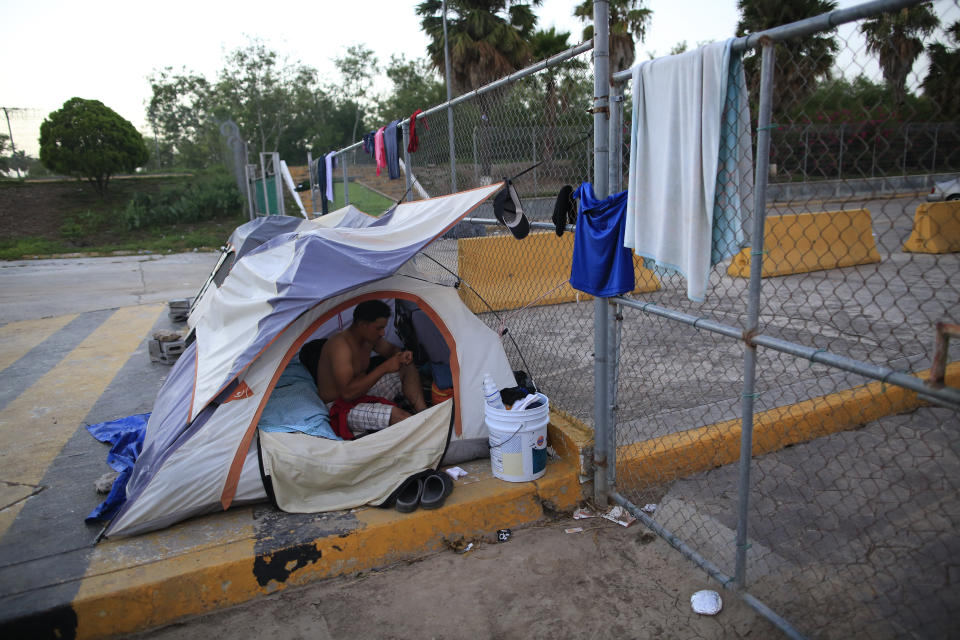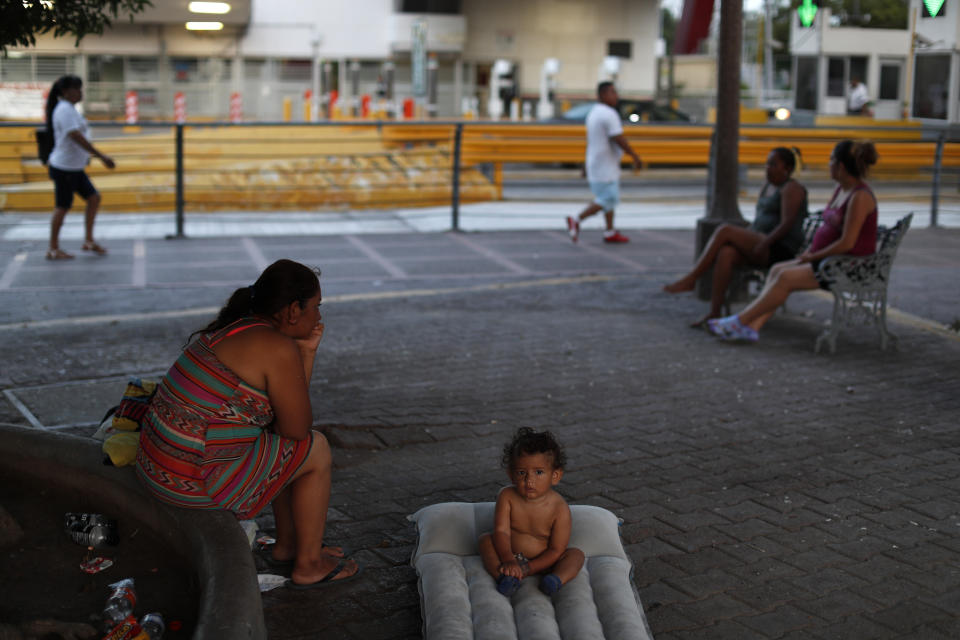Guatemala court asked to block 'safe 3rd country' with US
GUATEMALA CITY (AP) — Three former foreign ministers are asking Guatemala's Constitutional Court to bar President Jimmy Morales from entering into a "safe third country" agreement with the United States, days ahead of his visit to Washington announced Thursday.
Such an arrangement would require asylum seekers to apply for refuge in the first "safe" country they arrive in. That means Hondurans, Salvadorans and others who pass through Guatemala would not be able to go directly to the U.S. border and make an asylum claim there.
Critics of such a deal note Guatemala shares similar conditions of poverty and gang violence that are driving people to flee the other two countries of Central America's Northern Triangle.
Morales' government said via Twitter that he is expected to meet Monday with U.S. President Donald Trump and also with other officials to discuss security, immigration and economic matters.
Presidential spokesman Alfredo Brito said Morales' visit is not for the purpose of signing a "safe third country" deal.
Two U.S. officials with knowledge of the matter said, however, that a "safe third country" agreement with Guatemala is on the table and the hope is to have a signing ceremony while Morales is in Washington, though they cautioned that it was not a done deal. The officials agreed to talk about the matter only on condition of anonymity because they were not authorized to discuss it publicly.
Wednesday's court filing by the three former ministers was also signed by two former high-ranking diplomats and was made public Thursday.
It seeks an injunction against any agreement, arguing that Morales would be misusing a 1954 convention on simplified signing for international treaties to violate Guatemalan laws in response to pressure from Washington to slow a wave of mostly Central American migration toward the U.S. border.
Noting Morales has just six months left in office, the filing says an agreement "would allow the current president of the republic to leave the future of our country mortgaged, without any responsibility."
It also says a possible agreement has not been made public, violating principles of government transparency.
The court filing seeks to include in an injunction Guatemalan Foreign Minister Sandra Jovel and Interior Minister Enrique Degenhart, who have been involved in immigration and security talks with the United States.
Later Thursday, former presidential candidate Manfredo Marroquín filed a separate petition for an injunction, arguing that such an accord would violate basic individual rights and that Guatemala cannot afford to receive thousands of asylum seekers.
In the face of a surge of migrants and asylum seekers arriving at the U.S. border this year, the Trump administration has sought to pressure other countries in the region to help stop the flow.
It has also wanted Mexico to become a "safe third country," though Mexico has resisted such an agreement.
Mexico has, however, cracked down on migration through its territory including the use of thousands of National Guard troops to assist enforcement. It also agreed to expansion of a U.S. program under which asylum seekers are returned to Mexico to wait while their claims slog through severely backlogged U.S. immigration courts.
Jordán Rodas, Guatemala's human rights prosecutor, has repeatedly urged Morales to respect migrants' human rights and argues that making Guatemala a "safe third country" would be "prejudicial for the country and its inhabitants due to the institutional precariousness of the Guatemalan state and the conditions of exclusion, severe poverty, malnutrition, unemployment, social conflict and public insecurity."
Guatemala, which makes up most of Mexico's southern border, is both a source nation for people trying to make it to the United States and a transit country for other Central Americans, Haitians, Cubans and more.
Eric Schwartz, president of Refugees International, said an agreement would contravene the U.S. Immigration and Nationality Act and U.S. and international refugee law, which require asylum seekers to be transported only to safe places.
"A 'safe third country' agreement with Guatemala would slam shut the door on people seeking to escape violence in parts of Central America and trap them in the very situations they are trying to flee," Schwartz said.
The only other "safe third country" agreement the United States has negotiated was with Canada in 2002.
___
Associated Press writer Matthew Lee in Washington contributed to this report.


